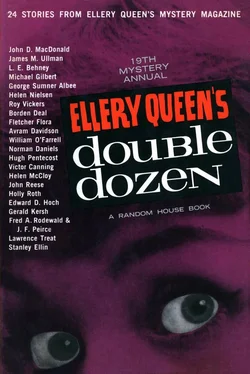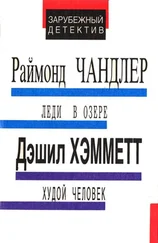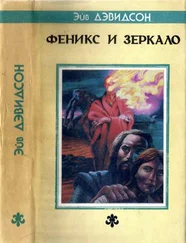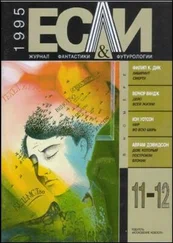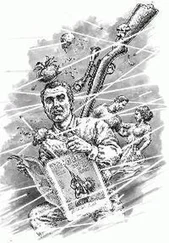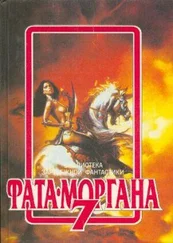He was pleased to see that Giorgio did not reel under this wholly false accusation. Instead, he seemed to draw strength from it. This is the way, Noah thought, that the unsuspecting animal is lured closer and closer to the trap. What hurt was that Rosanna, looking back and forth from inquisitor to accused, seemed ready to collapse. The rabbi watched with the same numb horror.
Giorgio turned to them. “Do you hear this?” he demanded, and there was a distinct mockery in his voice. “Now I am a murderer. Now I killed my own father.”
“Before a witness,” Noah said softly.
“Oh, of course, before a witness. And who was that witness, signore?”
“Someone who has just told the police everything. They’ll bring him here very soon, so that he can point you out to them. A Major von Grubbner.”
“And that is the worst lie of all!” said Giorgio triumphantly. “He’s dead, that one! Dead and buried, do you hear? So all your talk—!”
There are animals which, when trapped, will fight to the death for their freedom, will gnaw away one of their own legs to release themselves. There are others which go to pieces the instant the jaws of the trap have snapped on them, become quivering lumps of flesh waiting only for the end. Giorgio, Noah saw, was one of the latter breed. His voice choked off, his jaw went slack, his face ashen. The mop, released from his nerveless grip, fell with a clatter. Rosanna took a step toward him, but Noah caught her wrist, holding her back.
“How do you know he’s dead, Giorgio?” he demanded. “Yes, he’s dead and buried — but how did you know that? No one else knew. How do you happen to be the only one?”
The man swayed, fell back against the wall.
“You killed von Grubbner and took that money,” Noah said. “When your father tried to get rid of it, the partisans held him guilty of informing and shot him while you stood by, refusing to tell them the truth. In a way, you did help kill him, didn’t you? That’s what you’ve been carrying around in you since the day he died, isn’t it?”
“Giorgio!” Rosanna cried out. “But why didn’t you tell them? Why? Why?”
“Because,” said Noah, “then they would have known the real informer. That money was a price paid to you for information, wasn’t it, Giorgio?”
The word emerged like a groan. “Yes.”
“You?” Rosanna said wonderingly, her eyes fixed on her brother. “It was you?”
“But what could I do? What could I do? He came to me, the German. He said he knew I was of the Resistance. He said if I did not tell him where the men were hidden I would be put to death. If I told, I would be saved. I would be rewarded.”
The broken hulk lurched toward Rosanna, arms held wide in appeal, but Noah barred the way. “Why did you kill von Grubbner?”
“Because he cheated me. After the men were taken, I went to him for the money, and he laughed at me. He said I must tell him about others, too. I must tell everything, and then he would pay. So I killed him. When he turned away, I picked up a stone and struck him on the head and then again and again until he was dead. And I buried him behind the gate there because only the ragazzi knew how to get through it, and no one would find him there.”
“But you took that case full of money with you.”
“Yes, but only to give to my father. And I told him everything. Everything. I swear it. I wanted him to beat me. I wanted him to kill me if that would make it all right. But he would not. All he knew was that the money must be returned. He had too much honor! That was what he died for. He was mad with honor! Who else on this earth would try to return money to a dead man?”
Giorgio’s legs gave way. He fell to his knees and remained there, striking the floor blow after blow with his fist “Who else?” he moaned “Who else?”
The rabbi looked helplessly at Noah. “He was a boy then,” he said in a voice of anguish. “Only a boy. Can we hold children guilty of the crimes we inflict on them?” And then he said with bewilderment, “But what of the blood money? What did Ezechiele Coen do with it? What became of it?”
“I think we’ll soon find out,” said Noah.
They were all there at the gates of the Teatro Marcello when Commissioner Ponziani arrived with his men. All of them and more. The rabbi and Carlo Piperno, the post-card vender, and Vito Levi, the butcher, and a host of others whose names were inscribed on the rolls of the synagogue. And tenants of the Teatro Marcello, curious as to what was going on below them, and schoolboys and passersby with time to spare.
The Commissioner knew his job, Noah saw. Not only had he brought a couple of strong young carabinieri to perform the exhumation, but other men as well to hold back the excited crowd.
Only Giorgio was not there. Giorgio was in a bed of the hospital on Isola Tiberina, his face turned to the wall. He was willing himself to die, the doctor had said, but he would not die. He would live, and, with help, make use of the years ahead. It was possible that employment in the hospital itself, work which helped the unfortunate, might restore to him a sense of his own worth. The doctor would see to that when the time came.
Noah watched as the police shattered the lock on the gates and drew them apart, their hinges groaning rustily. He put an arm around Rosanna’s waist and drew her to him as the crowd pressed close behind them. This was all her doing, he thought. Her faith had moved mountains, and with someone like this at his side, someone whose faith in him would never waver, it would not be hard to return home and face down the cynics there. It didn’t take a majority vote of confidence to sustain you; it needed only one person’s granite faith.
The police strung up lights in the vaulted area behind the gate. They studied the ground, then carefully plied shovels as the Commissioner hovered around them.
“Faccia attenzione,” he said. “Adagio. Adagio.”
The mound of dirt against the wall grew larger. The men put aside their shovels. Kneeling, they carefully scooped earth from the hole, handful by handful. Then the form of a body showed, fleshless bones, a grinning shattered skull. A body clad in the moldering tatters of a military uniform.
And, as Noah saw under the glare of droplights, this was not the first time these remains had been uncovered. On the chest of the skeletal form rested a small leather case fallen to rot, marked by the blackened image of a doubleheaded eagle. The case had come apart at all its seams, the money in it seemed to have melted together in lumps, more like clay than money, yet it was clearly recognizable for what it was. Twenty years ago Ezechiele Coen had scraped aside the earth over the freshly buried Major Alois von Grubbner and returned his money to him. There it was and there he was, together as they had been since that time.
Noah became aware of the rabbi’s voice behind him. Then another voice and another, all merging into a litany recited in deep-toned chorus. A litany, Noah thought, older than the oldest ruins of Rome. It was the kaddish, the Hebrew prayer for the dead, raised to heaven for Ezechiele Coen, now at rest.
